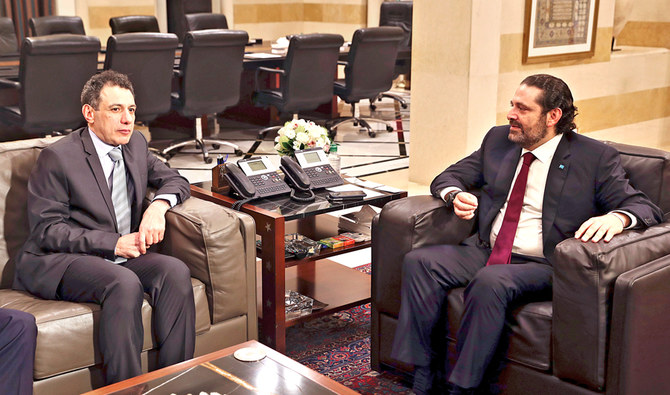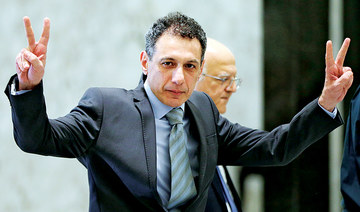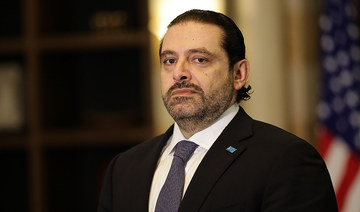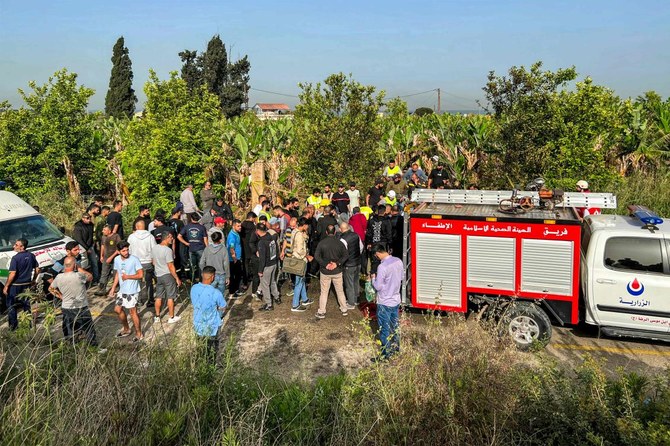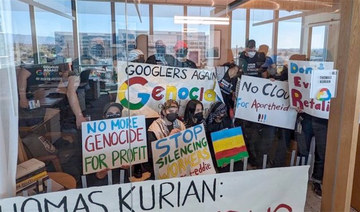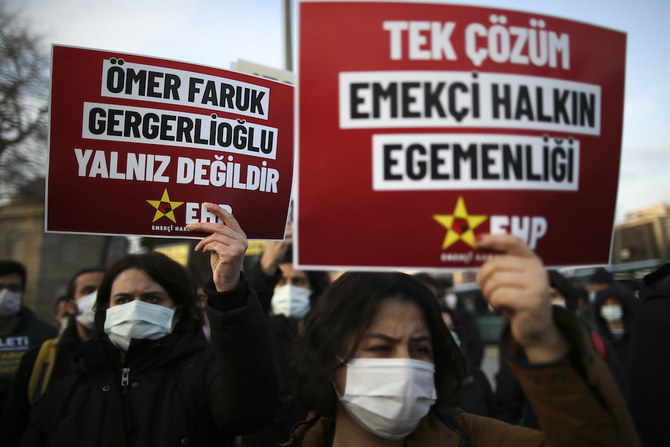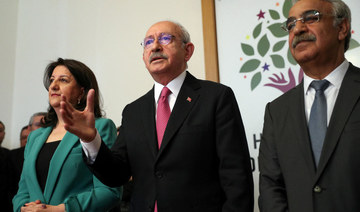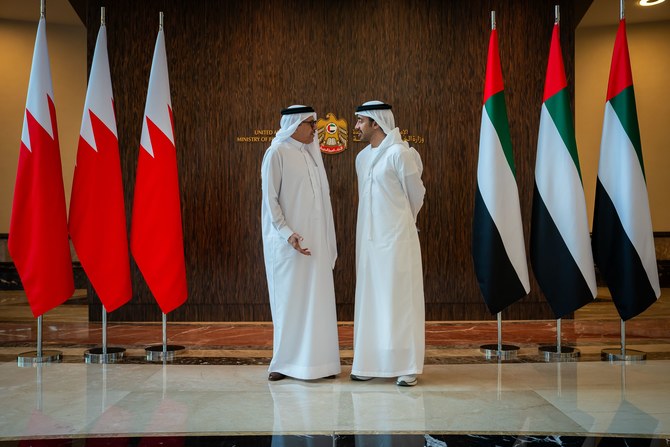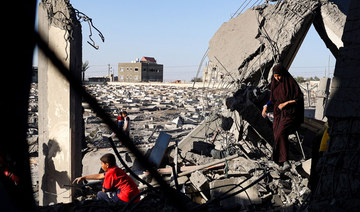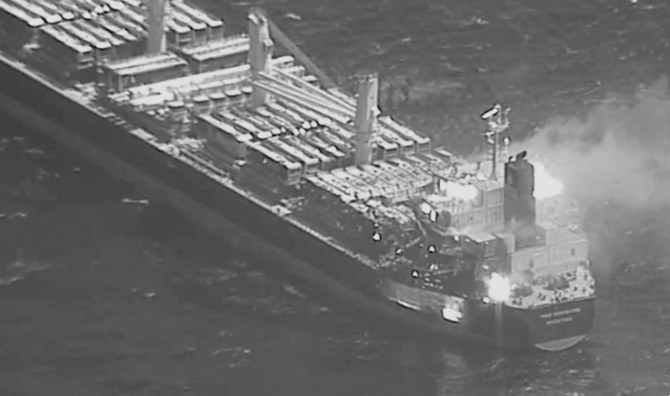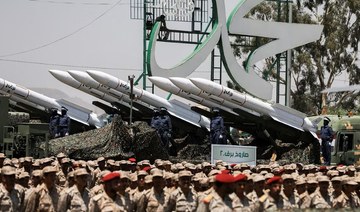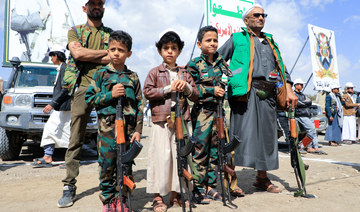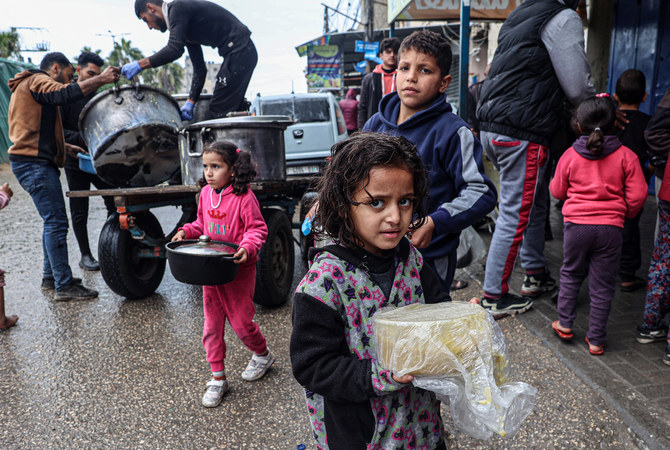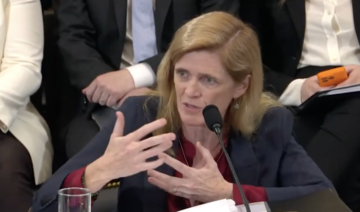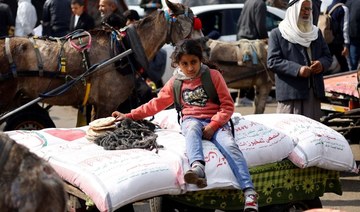BEIRUT: Nizar Zakka, who has barely been out of Tehran’s Evin Prison 24 hours after spending nearly four years in it, still feels the impact of what happened to him.
After his release, Zakka summarized what happened to him — his tears streamed down his face more than once during the interview.
Zakka said he visited Iran only four times previously on official invitations, and on a fifth after an invitation from the country’s vice president to participate in a conference on informatics.
“Three days after my participation in the conference, I did not feel that I was an unwanted guest and had not received any remarks. On my way back to the airport, a car with people in civilian clothes intercepted us. They took me out of the car and spoke to me in English saying that no one would see me anymore,” he told Arab News.
“They arrested me, and said that they would kill me. There was no explanation for what happened, and I was tortured. They asked me to say on camera that I was working with the Americans and I planned on overthrowing the regime in Iran. I was there because of an official invitation. So, I refused their request. I felt that if it was going to end in death, why not resist what was happening to me unjustly?
“They knew that I was innocent, but it seems that they wanted to send a message. The kidnappers were members of the Islamic Revolutionary Guard Corps, and they wanted to show that they could do what they wanted. I was an activist in the field of human rights and had free access to the internet, and expressed my opinion at a conference in Tehran. They exploited this as a weak link for international companies, to send them a message that they are forbidden to enter Iran. They succeeded, they stopped coming to Iran — they feared their safety.”
Sham trial
Regarding the trial he was subjected to, he smiled. “It was only for show. I stood in front of the judge and they began to mock me. One of them said that I was detained for inciting the revolution in Ukraine. I laughed and told the judge they had the wrong file. The representative of the Islamic Revolutionary Guard Corps read out the accusations, without asking me a single question, and that’s how I was sentenced. The cell I stayed in had 50 detainees living in the worst conditions.”
He said that in the cell, he knew Americans Ziyu Wang and Karen Godafari, former Iranian Vice President Hamid Mashaki, and Mahdi Rafsanjani, the son of former Iranian President Hashemi Rafsanjani. He said that he also met “an Iraqi detainee and many Iranians, Kurds and Arabs. There were many Iranian diplomats, all accused of treachery because it is the easiest charge.
“Every person who was arrested was subjected to physical torture of all kinds, which later turned into a psychological torture. I slept every night hoping not to wake up the next day.”
As for his contact with the outside world, Zakka said: “At first they allowed us to call family members, but only for 4 minutes that would go by without speaking, and later, when they transferred me to the public prison, those who ran it allowed us a 15-minute phone call. They dealt with us more compassionately than the Revolutionary Guard did.
I was physically and mentally tortured to a point where I wished for death.
Nizar Zakka, Lebanese businessman
“A year ago, I met with the director general of the Lebanese Directorate of General Security, but nothing happened. I lost hope. I was informed that Lebanese Foreign Minister Gebran Bassil spoke about my release date during Ramadan. The month went by, then Eid came, and nothing happened. Two days ago, those who imprisoned me came to tell me that I would be released.”
Zakka believes that the reason for his change of fortunes was the internal discussions in the Iranian regime over how to proceed with new Lebanese President Michel Aoun. “The Iranians wanted to present a gift to Aoun. It (his release) may have been a message to Lebanon, but perhaps there is something else. The Japanese prime minister (Shinzo Abe), who comes to Tehran, is the son of a foreign minister (Shintaro Abe) who played the biggest role in ending the war between Iran and Iraq.”
Aoun has so far avoided visiting Iran, despite several calls for him to do so. Political sources in Beirut believe that Aoun “takes into account the international community opposing Iran, and the internal Lebanese position critical of its interference in Arab countries.”
Celebrations
Zakka said that after announcing his release, he was accompanied by several Iranian civilians to the market and bought a cake to celebrate.
They also took him to the carpet market and asked him to choose the most expensive one. They chose one for $10,000 as a gift, and officers from the Revolutionary Guard Corps and the prosecutor’s office were asked to apologize to Zakka. A red carpet was also laid out at a private airport in Tehran as Zakka left Iran.
When asked if he had received calls from the US Embassy in Beirut after his release, Zakka said: “There are friends at the embassy who are calling to check.”
When he was arrested, he was 48 years old. Today he is 52. “Four years of my life were lost,” he lamented. “I watched my children grow up. I want to go to the US to see them. I miss them so much.”



